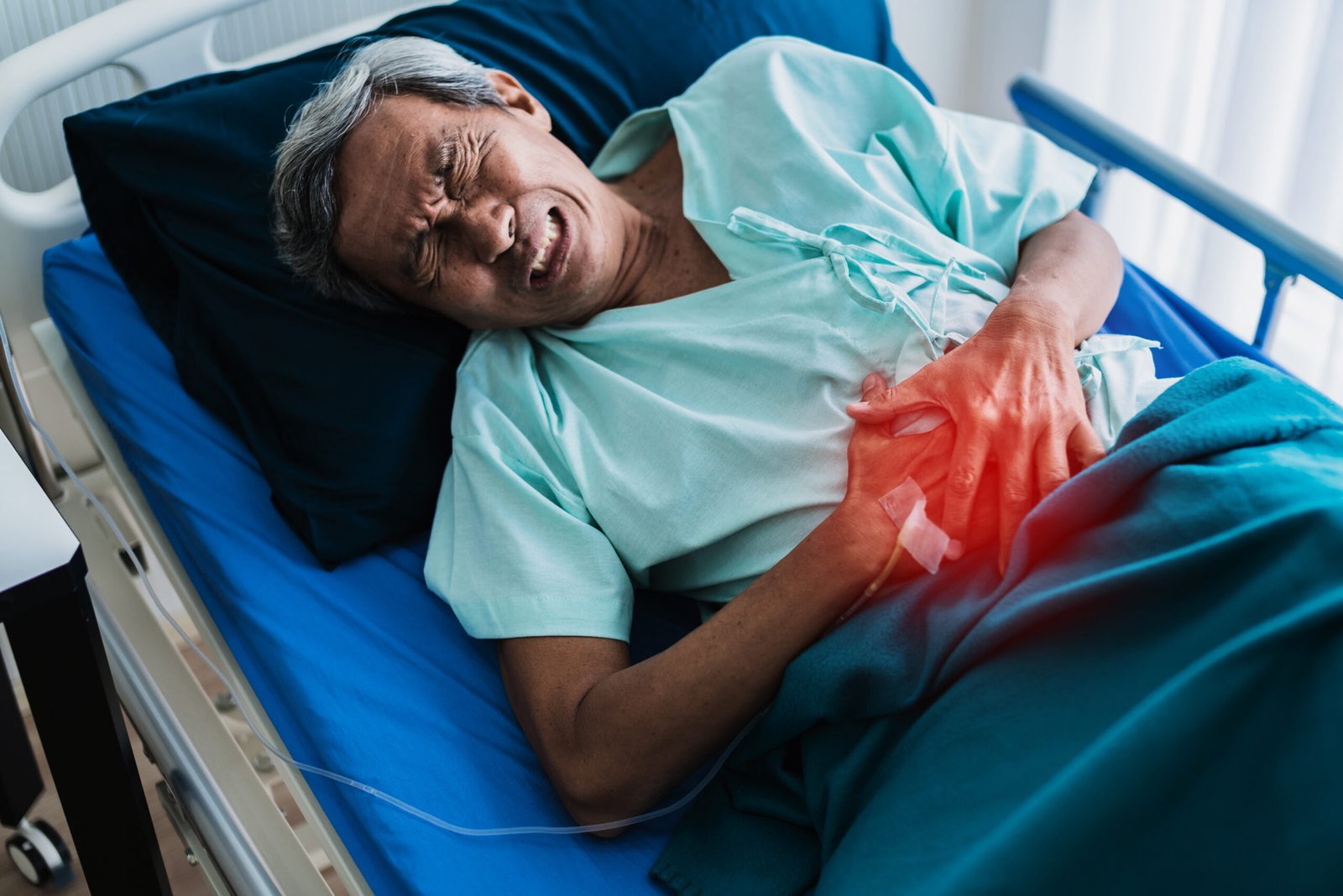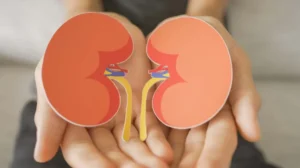Colon cancer is one of the most common types of cancer in Germany. As with many other types of cancer, if the tumor is detected early, the chances of recovery are good. However, if it remains undetected for a long time, it may have already spread. This often requires lengthy treatment with radiation and medication, and the chances of survival are significantly lower. Prevention also includes adjusting your lifestyle, including diet and exercise, to reduce your risk of colon cancer.
Overview of colon cancer screening
- Colon cancer is common, but if detected early, the chances of recovery are very good. If left undetected, it can spread and complicate treatment.
- From the age of 50, health insurance companies pay for either a colonoscopy (twice at ten-year intervals) or a stool test for hidden blood every two years.
- The stool test (iFOBT) examines stool for invisible blood and can provide evidence of cancer or precancerous lesions. A positive result should be confirmed with a colonoscopy. Regular use reduces the risk of death.
- A colonoscopy is more precise but more complex. It involves examining the colon and rectum using a camera-equipped tube under sedation or short-term anesthesia. Growths can be removed directly.
- A diet rich in fiber, little red meat, regular exercise, and a healthy weight can reduce the risk of colon cancer.
How does colon cancer screening work?
There are two main methods for early detection of colon cancer: the immunological stool test for occult blood and colonoscopy.
Health insurance companies in Germany cover both screenings, but only for people over 50 and for people known to be at increased risk for colon cancer for other reasons. If you’re 50 or older, your health insurance company will send you an invitation to a colon cancer screening by mail.
The statutory health insurance companies then reimburse one of these two options:
- You can have a colonoscopy twice, at least ten years apart.
- Alternatively, you can have a stool occult blood test every two years.
If a stool test yields an abnormal result, you are entitled to a colonoscopy. Experts even recommend undergoing a colonoscopy no later than four weeks after a positive result. This often allows precancerous or early stages of colon cancer to be removed immediately.

Colon cancer screening from age 35?
If you want to be on the safe side sooner, you can also do a stool occult blood test at your own expense. Some doctors’ offices offer this, and there are also over-the-counter colon cancer screening tests available.
If you have a family history of colon cancer and are therefore potentially at increased risk, it’s especially worthwhile to get screened starting at age 35. Health insurance companies often cover the costs. It’s best to talk to your doctor about testing options.
Did you know? Until recently, men could begin colon cancer screening at age 50, while women could only start at age 55, because it was assumed that men had a higher risk of colon cancer. Now, health insurance companies cover screening tests for all genders over age 50.
Stool tests for occult blood
The immunological stool occult blood test (iFOBT) examines a stool sample for hidden blood that is not visible to the naked eye.
If blood is detected in the stool, this is an indication of colon cancer or precancerous lesions. However, this does not necessarily mean a cancer diagnosis; there are many possible causes for blood, including stomach ulcers, hemorrhoids, and chronic inflammatory bowel disease. False-positive results are therefore relatively common. On the other hand, benign polyps and precancerous lesions are often overlooked because they do not (yet) cause bleeding.
However, studies now clearly show that iFOBTs can help reduce the number of people who develop colorectal cancer. A US study published in 2024 followed nearly 11,000 people between the ages of 53 and 85 over a period of 15 years. One of the results: Those who underwent stool tests for colorectal cancer screening had a 33 percent lower risk of dying from colorectal cancer.
Where can I get a colon cancer screening stool test?
To perform the test, your doctor will provide you with equipment that allows you to collect the stool sample at home, for example, at a general practitioner’s office, an internal medicine practice, or a urology practice. In this case, you can bring the sample back to the doctor’s office the next day or send it directly to a laboratory.
An alternative is over-the-counter test kits, which allow you to collect a stool sample at home and then return it by mail. The test provider then sends the samples to a laboratory or analyzes them themselves. You can order such test kits online, but they are generally not covered by health insurance.
How does a colon cancer screening stool test work?
Most test kits include a stool collection device for the toilet and a sample tube with a built-in dosing stick. This allows you to collect a small amount of stool, which you then bring to your doctor’s office or send back to the testing provider.
In the laboratory, special methods are then used that can detect the blood pigment hemoglobin, for example, the ELISA method or immunoturbidimetry.
How accurate is the stool occult blood test?
Laboratory tests are rarely 100% accurate, and this also applies to the immunological stool occult blood test. False-positive or false-negative results are relatively common with this type of test.
False positive: An iFOBT has a 5 to 8 percent false-positive rate, giving it a specificity of up to 95 percent. This means that about one in twenty tests is abnormal, even though no colon cancer is present. For people between the ages of 50 and 75 who regularly undergo stool tests, researchers have calculated an 18% probability of a false-positive result. It is therefore important to confirm a positive result with a colonoscopy.
False negative: An iFOBT has a false negative rate of approximately 30 percent. In other words, the test has a sensitivity of 70 percent. This means that a single stool test misses almost one in three cases of colorectal cancer. Therefore, it’s important to repeat the stool test every two years. The more often you do the test, the less likely it is that a tumor will be missed.
Colonoscopy for colon cancer screening
A colonoscopy is more complex, but also more accurate, than a stool test. The procedure is usually performed on an outpatient basis in a doctor’s office, a gastroenterology practice. You will be given a sedative or a short anesthetic for the colonoscopy, so you will usually be asleep during the procedure.
A colonoscopy, in which the rectum, the entire colon, and usually also the first few centimeters of the small intestine are examined, is called a colonoscopy. Doctors insert a flexible tube with a small light and camera, the colonoscope, into the colon. This allows doctors to examine the entire colon and rectum for abnormal growths.
The colonoscope also contains other instruments that can be used to remove growths. Benign polyps or precancerous lesions discovered during a colonoscopy can often be treated during the same procedure.
Prevention: Colon cancer prevention through lifestyle
In addition to genetic predisposition, your lifestyle also has a major influence on your risk of colorectal cancer. For a 2025 study summary, researchers analyzed 33 observational studies to evaluate preventive measures. The study shows that, among other things, regular exercise, a balanced diet, and a healthy body weight reduce the risk of colorectal cancer.
Here are some factors you can pay attention to if you want to specifically reduce your risk:
- Fiber: Above all, a fiber-rich diet. Eating plenty of fruits, vegetables, legumes, and whole grains contributes to colon cancer prevention. It’s best to eat a wide variety of these plant-based foods.
- Less red meat: Studies have shown that red meat and processed meat products, such as sausage, increase the risk of colon cancer. You should only consume these foods in moderation.
- Exercise: Regular exercise also reduces your risk. This applies to both moderate daily exercise and intense sports.
- Body weight: Severe overweight and obesity have been associated with a higher risk of colon cancer in studies.
- Alcohol and smoking: Drinking less or no alcohol reduces the risk. The same applies to avoiding cigarettes and other tobacco products.























+ There are no comments
Add yours